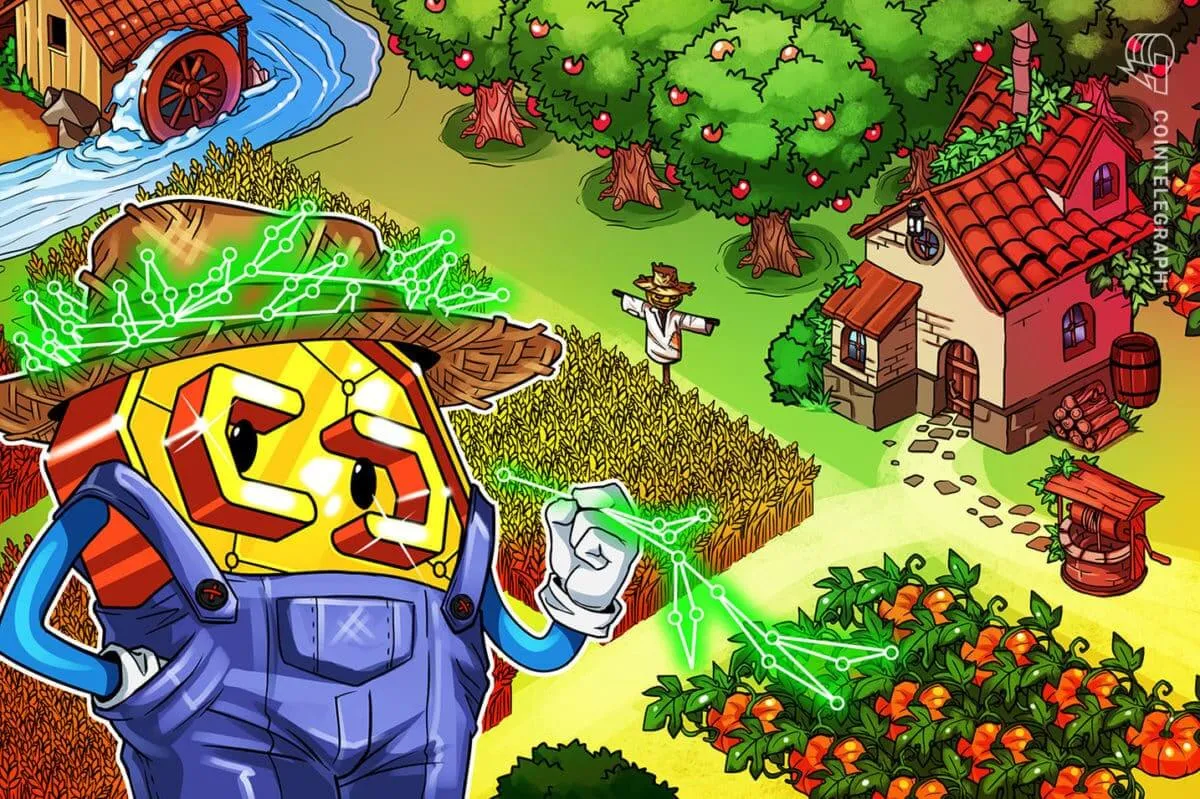
Who says DeFi smart investments are dead? Who says yield farming is dead?
What is being perceived by many as the extinction of crypto and decentralized economies is merely a phase that leads to the exponential expansion of DeFi smart investments, bringing sustainable yields to tokenomics via real world investments.
For years crypto investors and project builders have deluded themselves into a corner of self exaltation that they "perceived" real world investments as something that needs to be scraped out of existence, well, it's really weird when you want to build "decentralized economies" on the digital ecosystem but don't think up a need to build decentralized and ethically managed network of hardware manufacturers and software engineers and developers through incentives for good and counter-exploit measures and risks of malicious acts, who's to say your next windows update won't include a Spyware that attempts to take over your little digital projects?
Will that really happen or has it already? I'd say I don't know, the risk is indeed high for a company as Microsoft, but the point is - digital economies are accessed via physical devices, so why would anyone want to ignore the network of value in the real world? This is where business begins and it quite frankly settles there too, so yeah, let's revisit DeFi smart investments and rewrite the offerings and protocols.
DeFi was structurally flawed from day 1
One of the questions that most DeFi projects developers cannot answer is:
"What makes your ecosystem token valuable?"
In all honesty, even most blockchains and regular crypto projects cannot answer this either and that's why they are fundamentally set up to fail!
The success of a business is reliant on "problem solving", without solving a problem or filling a need or want in the market, you're structurally designed to fail.
Bitcoin proves that filling a need is what works, but you know what the problem is? When people discuss bitcoin solving the flaws of money, and practically value assets, they often don't elaborate on why the system actually works!
Well, it works because of incentives and disincentives for bad actors!
Bitcoin is heavily reliant on real world shit to offer the services it was designed to. This "real world shits" include mining hardwares, electricity and guess what? A fuckin job or the owner needs to at least have an investment he can draw value from to invest in his bitcoin business.
Didn't expect the last one right? People don't understand it, you cannot get to the promised land - Israel - from Egypt without passing through the red sea, does that paint a familiar picture?
It is ugly to imagine, sometimes, but that's how it is supposed to be, the digital space cannot exist without investments in the real world.
MakerDAO gets it
It is important to note that I have no investment in Maker at the time of writing so this definitely doesn't benefit me in any way.
MakerDAO has been moving into real world investments like bonds and even investing in banks - I believe issuing loans(that's a crazy one, I'd agree), all just to draw some external value to its ecosystem.
Now, I don't know if Maker is truly decentralized or if there are several layers of risk factors that may affect the immunity of DAI(MakerDAO's stablecoin) to centralized attacks or even the Maker token itself, our focus here, bringing MakerDAO into the conversation is to learn from its venture into real world assets.
Did you know?
The move has helped MakerDAO despite a slowdown in the broader DeFi ecosystem. The protocol’s annualized revenue, for one, is nearing $150 million, a substantial portion of which is derived from RWAs. In fact, data from DeFiLlama revealed that MakerDAO’s revenue has increased more than 10x since it started purchasing treasury bonds in October 2022, from $31,300 earned daily to over $333,555 at the time of writing.
Recent data suggest that Maker currently earns around 70-80% of protocol revenue via stability fees against RWAs. The DeFi protocol’s RWA portfolio consists of multiple asset managers and a diverse range of debt instruments, including investment-grade bonds, short-term t-bill ETFs, business loans, etc Cryptopotato.com.
Now that's a not so ugly picture.
Tokenization as a major entry
One of the problems or factors that had limited the crypto ecosystem from venturing into real world assets had been the "centralized factor" in the process and the headaches that would accompany trying to build individual systems to track every bit of data for the sake of maintaining transparency of ecosystem value flow on the blockchain level.
With tokenization becoming a much widely discussed topic amongst real world businesses, we can expect to start seeing tokens representing several layers of real world business revenue pots that would allow DeFi smart investments protocols to easily move network funds into sustainable businesses to earn "real world yields" show up.
The farming of real world yields is about to become a default to DeFi protocols and with the aid of Blockchain Oracles (story for another day), these DeFi ecosystems can ensure that these tokenized real world investments are offering real time accurate business data in order to maintain a moderate investment risk level and ensure sustainability for the invested protocols.